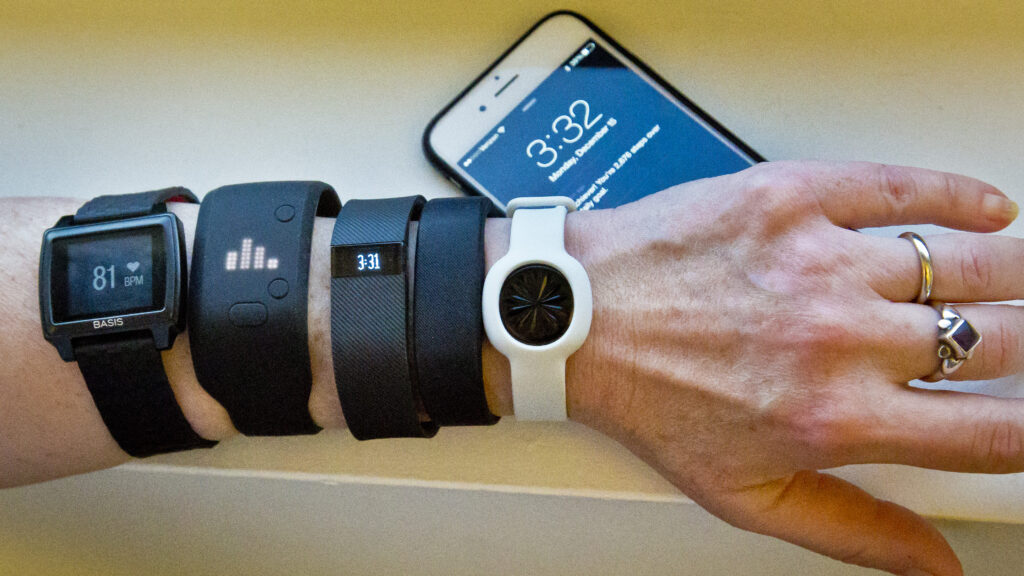Turn on your TV or open a web browser this January, and you’ll be bombarded with ads for fitness trackers, smart scales, health apps, and other digital innovations promising to streamline your journey to a happier and healthier you. It’s the time of year when we’re most susceptible to such messaging: Surveys show that at least one-third of our New Year’s resolutions focus on exercising, losing weight, or eating better.
That’s great news for the $45 billion fitness tracking industry, which spends vast sums on advertising designed to convince us that data is the key to better living. The marketing campaigns work: Each January, fitness app downloads spike 36% higher than usual. We’ve also seen the rise of over 400 personalized nutrition companies, while over 12 million people have sequenced their DNA through 23andMe.
advertisement
Only one problem: The data isn’t working. At least 1.4 million Americans are diagnosed with diabetes each year. Obesity rates soared from 31% to 42% over the past decade. Life expectancy is declining. We were told data would put us in control, but we’re actually less healthy than ever.
What’s going on? It’s partly that the data isn’t accurate enough for our needs. Many people report gaining weight despite their gadgets claiming they’re running a calorie deficit. Some activity trackers overestimate activity levels by 10% or more, driving a potential weight gain of 10 pounds per year. There are also questions about bias, with some heart rate monitors not working effectively on darker skin.
Tracking what we eat is even harder. Sure, we forget to log snacks or struggle to estimate our portions, but we’re also working with faulty data. Nutrition labels are legally allowed to be off by up to 20%, and one study found some restaurant dishes had twice as many calories as advertised.
advertisement
The bigger problem is that our trackers don’t monitor the right things. Take sleep sensors. To know whether your afternoon coffee or noisy neighbors impact your sleep quality, you need data on those factors. Instead, apps simply estimate how long or deeply you slept — something you probably already knew — without doing anything to improve the quality of your sleep.
To empower us, data needs to be accurate, relevant, and actionable. Consider DNA testing: It’s useful to get genetic counseling to assess specific risk factors and determine treatment or prevention plans. But if a recreational test says you’re at risk for an unpreventable illness like Parkinson’s, you can’t do much with that information. Similarly, my smartwatch revealing that my foot touches the ground for 200 milliseconds per step adds little value as I run through the park. Data creates the illusion of control, but the reality is often confusing, distracting, or downright demoralizing.
New AI technologies like ChatGPT could help summarize this data in a more digestible form, but that isn’t much use if we’re collecting the wrong data in the first place. These tools are also prone to making incorrect claims, so relying on them to interpret error-prone data could lead to additional distortions like a high-tech game of telephone.
This isn’t to suggest that data is the enemy. The right data can be transformative. Continuous glucose monitors have revolutionized the management of type 1 diabetes by enabling machines to take over the everyday work of keeping blood sugar in a healthy range. People may start using a platform like Strava — an app to track running, biking, and hiking — for the numbers, only to find social support that keeps them motivated.
The answer isn’t to get rid of health data altogether. But we do need to go on a data diet. It’s fine to use data to understand broad trends, like keeping an eye on your steps as a proxy for your general level of activity. The data should be a means to an end, though, not a source of validation in its own right. The man I saw recently flailing his arm during a meeting every time his smartwatch vibrated might have been tricking his device into thinking he was walking around, but he wasn’t making himself healthier or happier.
If you’re tired, it doesn’t matter if your smartwatch thinks you had a great night and should exercise intensely — you probably need more rest. And no matter how much data you collect, you’re still the one who has to actually prepare a healthy dinner, put your phone down and go to bed, or drink that extra glass of water.
This more mindful approach to health data is catching on. This past summer, the U.S. Army exempted high-performing soldiers from body-fat requirements after finding that measuring a recruit’s waistline says less about their fitness than simply checking how fast they run or how many pushups they can do. Many professional runners, similarly, are shelving their smartwatches and training based on how their body feels rather than what the numbers say.
In the same way, it’s important to think carefully about the data you seek out and use. Rushing to buy the latest data-driven gadget risks giving you a false sense of control — while leaving you no closer to your goals. So if you want to take control of your health this year, remember that when it comes to data, sometimes less is more.
Samantha Kleinberg is the Farber chair associate professor of computer science at Stevens Institute of Technology and author of “Why: A Guide to Finding and Using Causes.”

